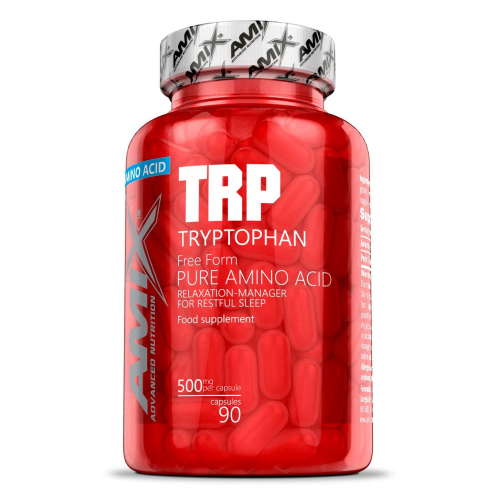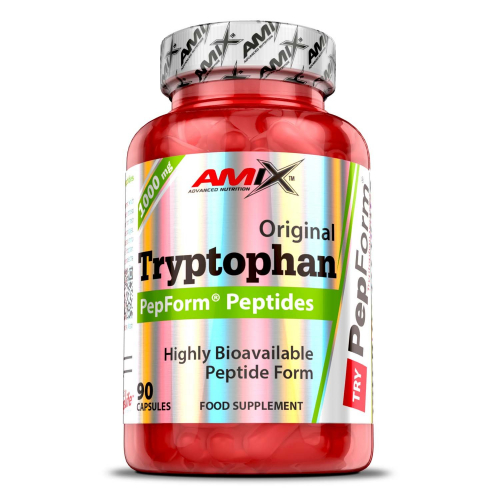Tryptophan
Tryptophan is an essential amino acid that plays a vital role in the body. It serves as a building block for proteins and is a precursor for several important molecules and neurotransmitters, including serotonin and melatonin.
As an essential amino acid, tryptophan cannot be produced by the body and must be obtained through dietary sources. It can be found in various protein-rich foods such as turkey, chicken, eggs, dairy products, nuts, and seeds.
Tryptophan is best known for its role in promoting relaxation and supporting healthy sleep patterns. This is because it is a precursor for serotonin, a neurotransmitter that regulates mood, appetite, and sleep. Serotonin is converted into melatonin, the hormone that helps regulate the sleep-wake cycle.
Supplementing with tryptophan or consuming foods rich in tryptophan may have several potential benefits:
-
Improved mood: Tryptophan is involved in the production of serotonin, which is associated with feelings of well-being and happiness. Increasing tryptophan levels may support a more positive mood.
-
Sleep support: Tryptophan can help promote healthy sleep patterns by increasing the production of serotonin and melatonin. It may improve sleep quality and help regulate the sleep-wake cycle.
-
Stress reduction: Serotonin, influenced by tryptophan levels, plays a role in managing stress and anxiety. Adequate tryptophan intake may help alleviate stress and promote a calmer state of mind.
-
Appetite control: Tryptophan is involved in regulating appetite and satiety. Adequate levels of tryptophan may help reduce cravings and support healthy weight management.
It's important to note that while tryptophan supplementation may have potential benefits, it should be done under the guidance of a healthcare professional. Tryptophan supplements should not be combined with certain medications, such as antidepressants or sedatives, without medical supervision.
The recommended dosage of tryptophan can vary depending on individual needs and health conditions. It's advisable to follow the instructions provided on the supplement packaging or consult with a healthcare professional for personalized advice.
In summary, tryptophan is an essential amino acid that plays a crucial role in the body's production of serotonin and melatonin. Adequate tryptophan intake from dietary sources or supplements may support mood regulation, sleep quality, stress reduction, and appetite control. However, it's important to seek guidance from a healthcare professional before starting any new supplement regimen.
L-Tryptophan is an essential amino acid. Essential amino acids are not produced by the body and…
Amix™ Tryptophan PepForm® Peptides is a food supplement which contains a unique form of L…


